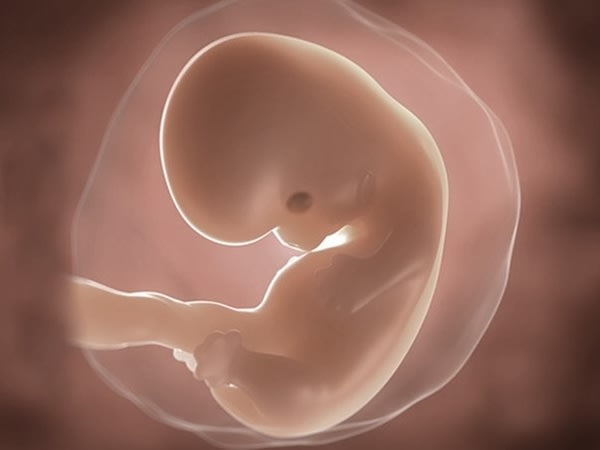Numi Scan Grimsby Blog

7 Weeks Pregnant
Sunday 4th June 2023
During week 7, your baby’s arm buds are emerging and flat, paddle-like hands are forming. Iodine supports your baby’s growth at this time. Discover which foods contain this mineral, and why you may want to ask your doctor about taking a daily iodine supplement.
Hands are emerging
At 7 weeks pregnant, your baby measures anywhere between 42 and 10mm3 long. They are assuming a more baby-like appearance, with arms buds becoming longer, and flat, paddle-like hands emerging.
At this stage, your baby’s head is growing faster than their body; a reflection of the rapid and intense brain growth that is happening. Their heart is also developing, and has divided into distinct right and left chambers. At the same time, air passages are starting to form within the lungs – these will eventually grow into a more complex network of bronchi.
If you were able to see your baby’s face, you’d be able to spot two tiny nostrils. Their mouth is taking shape too, with lips, a tongue and tooth buds appearing. Meanwhile, their eyes and inner ear structures continue to develop, although it will be some time before these function properly.
Are you getting enough iodine?
Iodine, a mineral found in certain foods, helps make the hormones produced by the thyroid gland. These hormones assist in regulating metabolism and keeping cells healthy. Iodine has also been shown to contribute to normal cognitive function, with one important study showing that the cognitive development of children born to mothers who didn’t get enough iodine during pregnancy being poorer than children whose mums had a good intake. Studies like these are leading experts to believe that iodine may be more important in pregnancy than was previously thought.
”Good sources of iodine include fish and other seafood, and dairy foods like milk and yogurt.”
The recommended daily intake (RNI) of iodine for women between the ages of 19 and 50 is 0.14mg9. Maintaining an adequate intake during pregnancy supports your baby’s normal growth, as well as helping to regulate your thyroid hormones.
An NHS study in 2011 revealed that many teenage girls in the UK aren’t getting enough iodine from their diet, and these findings are thought to reflect the iodine status of many people in the UK. If you’re not sure whether you’re getting sufficient levels of iodine, talk to your doctor or midwife about taking an iodine supplement.
NEXT STEPS
Replacing your regular salt with an iodised version is an excellent way to increase your iodine intake. Boost your iodine levels further by including the following foods as part of your well balanced diet.
- Haddock
- Cod
- Prawns and other pregnancy safe seafood (make sure they are cooked)
- Milk
- Yogurt
- Seaweed





